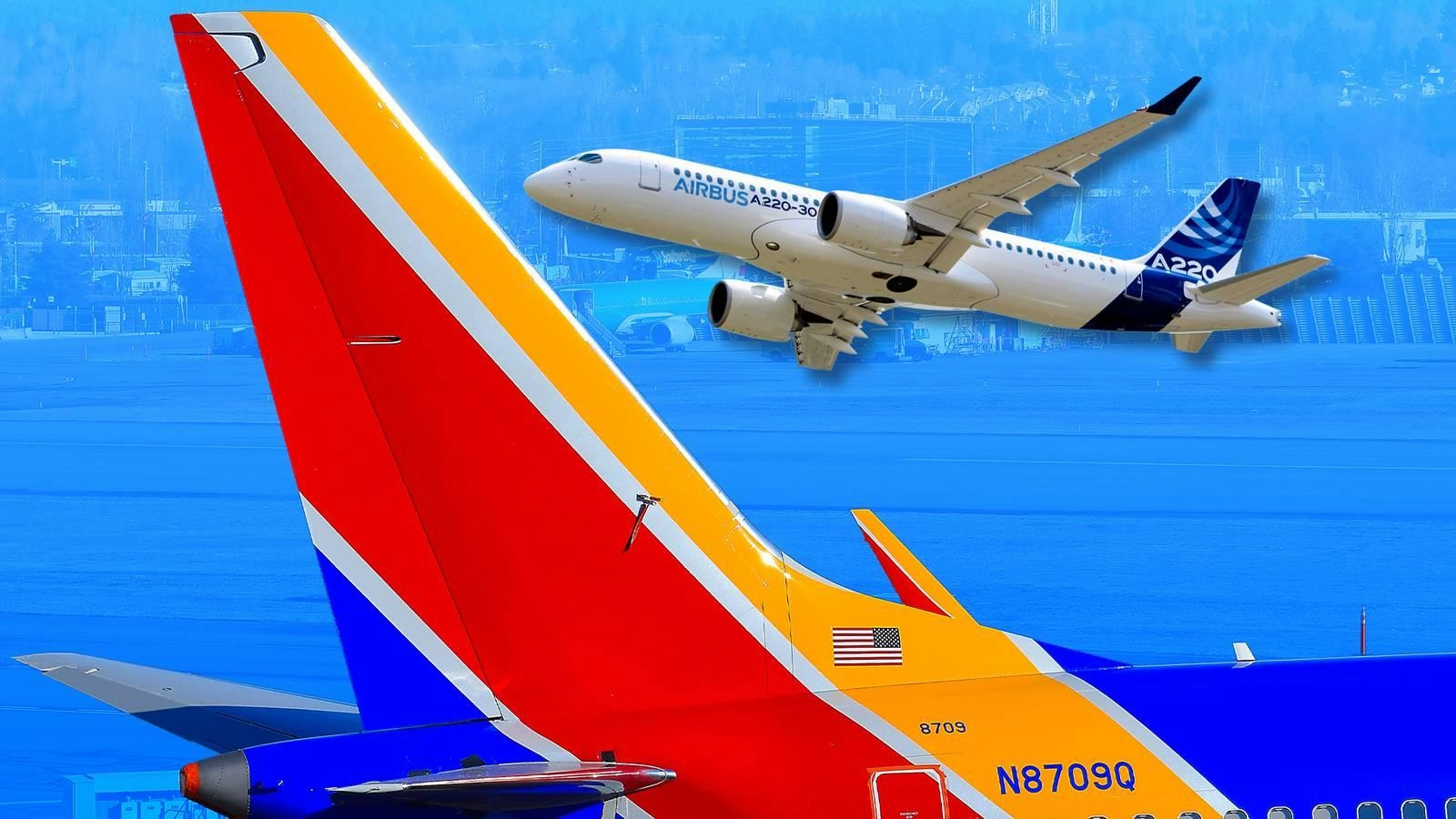AeroGenie — Uw intelligente copiloot.
Trending
Categories
Southwest Airlines Shows Growing Interest in Airbus A220

Southwest Airlines Shows Growing Interest in Airbus A220
Earlier this year, speculation arose regarding Southwest Airlines’ potential addition of the Airbus A220 to its fleet, as the carrier accelerates the retirement of its aging Boeing 737-700 aircraft. Although Southwest has placed substantial orders for hundreds of Boeing 737 MAX 7s to replace these older models, ongoing certification delays have raised questions about whether the airline—historically committed exclusively to Boeing 737s—might be compelled to explore alternative options.
A 50-Year Boeing Partnership at a Crossroads
Southwest’s partnership with Boeing spans more than five decades, beginning in 1971 with the introduction of the 737. Since then, the airline has operated over 1,000 Boeing 737s, currently maintaining a fleet of 810 aircraft comprising 334 737-700s, 203 737-800s, and 273 737 MAX 8s. Additionally, Southwest holds outstanding orders for 314 737 MAX 7s and 196 737 MAX 8s. This single-type fleet strategy has yielded significant operational efficiencies, including streamlined pilot training, simplified maintenance, and rapid aircraft turnaround times. For Boeing, Southwest has been a dependable customer, securing billions in sales over the years.
The prospect of introducing the Airbus A220 would represent a significant departure from this longstanding relationship. Such a move would not only challenge the deep-rooted Boeing-Southwest alliance but also necessitate substantial investments in new pilot training programs, maintenance infrastructure, and potentially the renegotiation or cancellation of existing Boeing orders—actions that could incur considerable financial penalties.
Previous Consideration and Ongoing Challenges
Southwest has previously evaluated the Airbus A220, particularly during the COVID-19 pandemic when reduced travel demand created an opportunity to modernize its fleet. At that time, Airbus positioned the A220 as a reliable alternative amid the 737 MAX grounding crisis. Despite this, Southwest ultimately decided against incorporating the A220, citing the operational disruptions and costs associated with introducing a new aircraft type.
The A220-300 model, as described by Airbus, offers a maximum seating capacity of 160 passengers, with a typical two-class configuration accommodating 120 to 150 seats, and a range of 5,470 nautical miles. It is powered by two Pratt & Whitney PW1500G engines, each delivering up to 24,400 pounds of thrust. However, these engines have faced reliability concerns, as evidenced by operational challenges experienced by Swiss International Air Lines. Such issues are likely to weigh heavily on Southwest’s decision-making process, given the airline’s emphasis on fleet dependability and operational consistency.
Market Dynamics and Competitive Pressures
Southwest’s potential interest in the A220 emerges amid heightened scrutiny within the aviation industry. The recent European Union approval of Boeing’s acquisition of Spirit AeroSystems—conditional upon divesting Airbus-related activities—underscores the complex competitive dynamics between major aircraft manufacturers. Should Southwest proceed with integrating Airbus aircraft, competitors may capitalize on the opportunity to highlight their own fleets’ reliability and performance, seeking to attract customers unsettled by Southwest’s possible diversification.
Meanwhile, Airbus continues to expand its A320 family assembly lines and enhance digital connectivity services, further solidifying its market position. Any decision by Southwest to adopt the A220 would not only transform its operational framework but could also influence broader industry trends and competitive strategies.
Conclusion
Southwest Airlines’ exclusive reliance on Boeing 737s has been a defining element of its business model for decades. However, ongoing certification delays and shifting market conditions are prompting the airline to reassess its fleet strategy. The Airbus A220 presents both potential advantages and significant challenges, ranging from operational disruptions to concerns over engine reliability. As the aviation industry closely monitors Southwest’s next steps, the airline’s decisions may have far-reaching implications for fleet management and manufacturer relationships across the sector.

Capital A Completes Sale of Aviation Business to AirAsia X

Four Gateway Towns to Lake Clark National Park

PRM Assist Secures €500,000 in Funding

InterGlobe Aviation Shares Rise 4.3% Following January Portfolio Rebalancing

Key Market Segments Shaping Airline Route Profitability Software

Locatory.com Gains Traction Among Aviation MROs and Suppliers

JetBlue Flight Makes Emergency Landing Following Engine Failure

58 Pilots Graduate from Ethiopian University

The Engine Behind Boeing’s Latest Widebody Aircraft

UBTech Shares Rise After Airbus Orders Humanoid Robots
